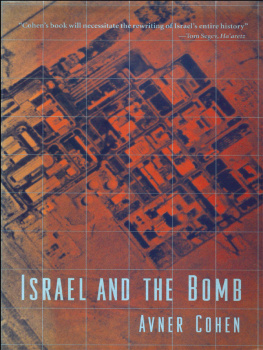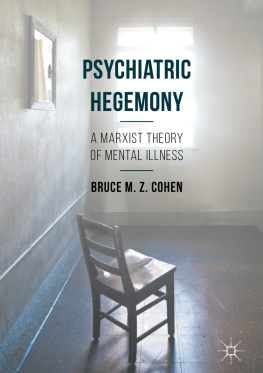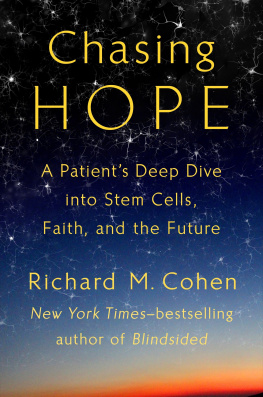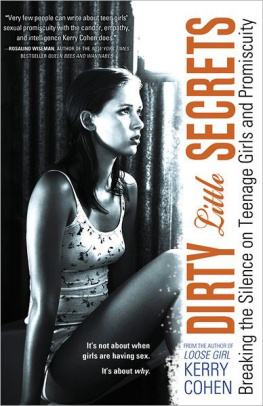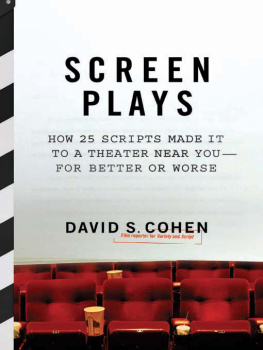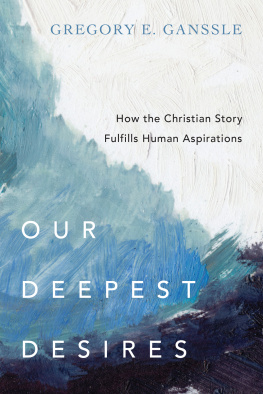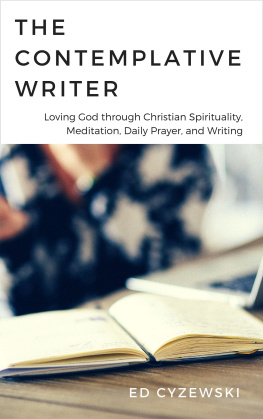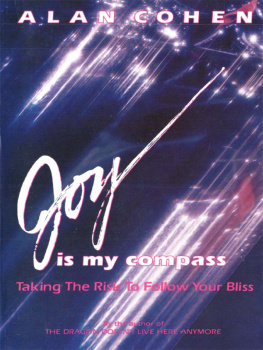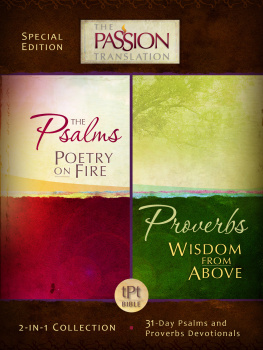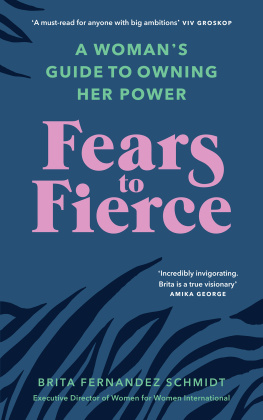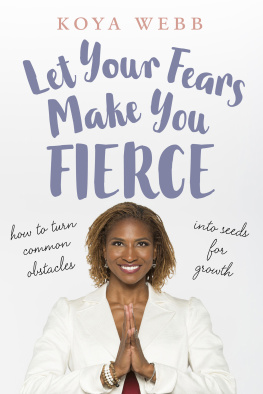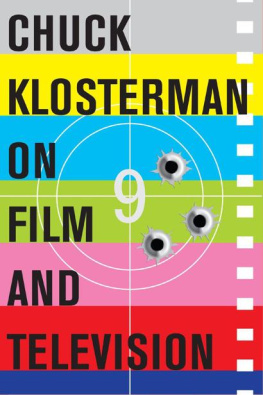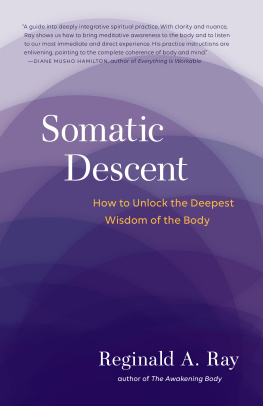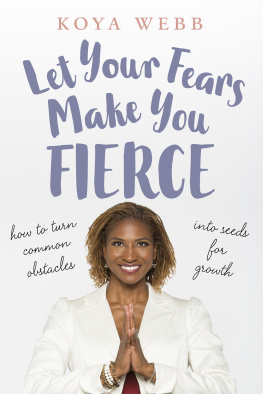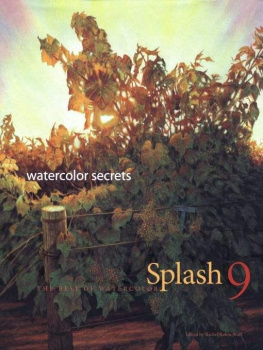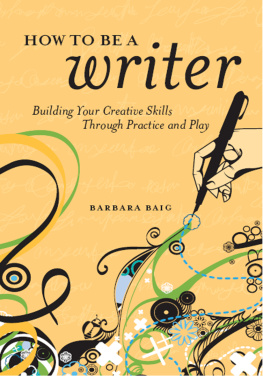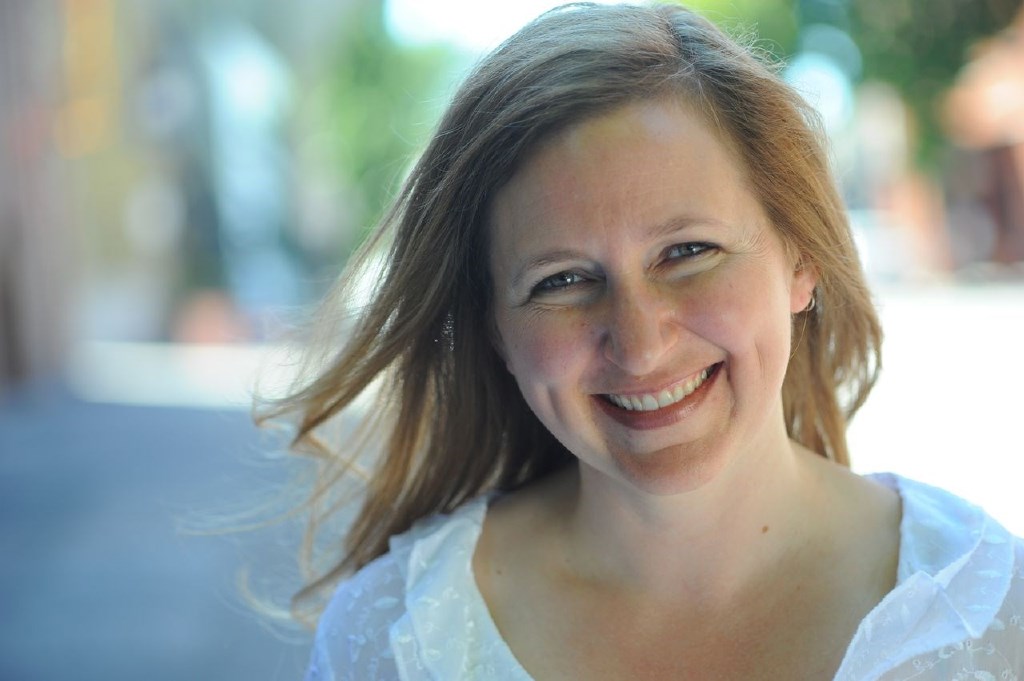Contents
Guide
Fierce on the Page
Become the Writer You Were Meant to Be and Succeed on Your Own Terms
Sage Cohen
Cincinnati, Ohio
FIERCE ON THE PAGE. Copyright 2016 by Sage Cohen. Manufactured in the United States of America. All rights reserved. No part of this book may be reproduced in any form or by any electronic or mechanical means including information storage and retrieval systems without permission in writing from the publisher, except by a reviewer, who may quote brief passages in a review. Published by Writers Digest Books, an imprint of F+W Media, Inc., 10151 Carver Road, Suite # 200, Blue Ash, OH 45242. (800) 289-0963. First edition.
For more resources for writers, visit www.writersdigest.com .
Distributed in Canada by Fraser Direct
100 Armstrong Avenue
Georgetown, Ontario, Canada L7G 5S4
Tel: (905) 877-4411
Distributed in the U.K. and Europe by F&W Media International
Brunel House, Newton Abbot, Devon, TQ12 4PU, England
Tel: (+44) 1626-323200, Fax: (+44) 1626-323319
E-mail:
Distributed in Australia by Capricorn Link
P.O. Box 704, Windsor, NSW 2756 Australia
Tel: (02) 4577-3555
For Theo, my fierce love
About the Author
Sage Cohen is the author of the nonfiction books Writing the Life Poetic and The Productive Writer, and the poetry collection Like the Heart, the World. Her prizewinning poems, essays, fiction, and how-to articles have been published widely, and Sage has been sought out as a literary instructor, writing coach, presenter, performer, and judge. As the founder of Sage Communications, she has been crafting the strategies and writing the words that accelerate business since 1997. Sage is a graduate of Brown University and the Creative Writing Program at New York University. She lives in Portland, Oregon, with her young son and a menagerie of animals. Learn more at sagecohen.com .
Introduction
Unleashing the Fierce Writer Within
As writers, we can reliably improve our craft by refining ourselves. The attitude and approach we bring to our work ultimately define the quality of the writing we produce. I believe that when making the crossing from good to great, ferocity is our best compass.
The fierce writer ensures that the time and energy she invests in her craft pay dividends of insight and evolution. The fierce writer discovers how to come into alignment with his authority, leverage his instincts, and honor his rhythms to become the truest instrument of his craft.
I believe youre holding this book because you are already a fierce writer. You have everything you needand you are everything you needto do the writing you want to do.
You may not know yet what fierce writing means to you, or how you can reliably harness your ferocity in service to your writing. Im here to help you find out. This book offers a range of strategies, attitudes, tools, and practices to aid you in unleashing your own ferocityin writing and in life.
Together, we will explore ways to reduce friction, gain momentum, and source joy from your writing so you can bring forward the words only you can bring to the page and become the writer you were meant to be. Live the life you want to live. And make your greatest contribution.
Join the conversation about cultivating and sustaining a fierce writing life at fierceonthepage.com .
1
You Are Your Best Expert
The first job of the poet is to become the person who could write the poems. Stanley Kunitz
If you pick up a turtle attempting to cross a busy road and try to redirect him to safety, he will likely return to the same place in the road where you found him and continue his crossing. The turtle has an internal guidance system that is impervious to your ideas of traffic. Despite your best intentions to share your wisdom, the turtle needs to find out for himself how to navigate the roads potential perils.
When it comes to receiving advice, we are all turtles. Even the greatest advice from well-meaning people cant save us. We can only save ourselves.
This notion can be hard to accept. We see that our literary heroes managed to traverse the road intact, and we want them to tell us how we can do it, too. But they cant tell us anything we are not willing to discover for ourselves. Even if Stephen King, Anne Lamott, or Mary Oliver were to sit us down and tell us exactly how they advanced their literary lives, chances are that what worked for them wouldnt serve us equally well. Their writing and their careers have been shaped by their fabulous, unprecedented quirksand ours will be, too.
Your job is to become the expert of you. When you get writing advice from a book or teacher, or when you see a writer you admire doing something that seems to be working, I propose that you try it only if it sounds appealing, and keep doing it only if it works. Experts are useful, but theyre not the authority on you.
There is no absolute truth but your own when it comes to your writing life, and I invite you to follow your own golden thread to name it and claim it.
For example, the common wisdom is that the early morning is the best time to write. But the best time for me is from 4 P.M. to midnight. A good number of experts insist that you sit at your desk every day and stay there for a certain amount of time, or until you produce a certain number of words. Nope. Im not going to do that, especially when writing poetry. Instead, I wait until a project fills me with so much love, excitement, and anticipation that I simply cant imagine an alternative to being at my desk, making it happen. I dont have to plan a time to show up and write, because I know I can count on myself to do so regularly. Yet, often I do follow a schedule, because this serves me well in accomplishing large, long-term goals.
Many writers specialize in a genre, and this is generally considered a very good idea. But its not who I am, so its not what I do. Has it hindered my career? Hard to say. But I do know that I havent limited my writing based on anothers interpretation of what a writing life should be. And that has helped me build trust with the source from which my writing is drawn, such that I dont lose momentum by trying to be the writer I think Im supposed to be.
And despite whatever biases I may have about what I should be writing, or the work other people are producing that is more impressive than my own, or any imagined disapproval I might project throughout the spectrum of submission, publication, and readership, I have simply committed to showing up and writing down what wants to come through.
I believe this may be the single most important thing we can do as writers.
I know what works for me because I keep experimenting. I stay with a groove until it starts to feel like a rut, and then I try something else. The longer I live and write and experiment, the more nuanced this exploration becomes.
Out of respect for your inner turtle and mine, I do not wish to offer you advice. Rather, I invite you to experiment, innovate, have fun, and notice what happens as you do. You are the deepest mystery you will ever navigate, and there is no better explorer for the job than you.
Writing can teach us who we are and what we are called to say. You become the person who could write the poems, as Stanley Kunitz advises, through the writing of the poemsand the stories and articles and essays.


